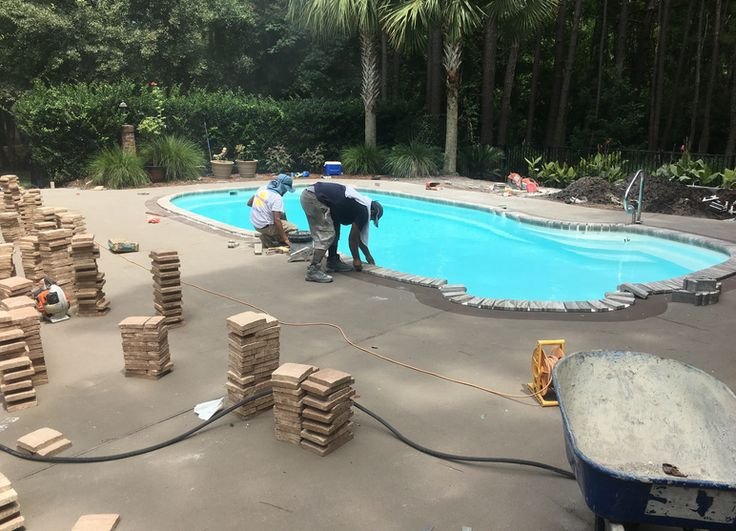Commercial Pool Renovation is a significant investment that impacts aesthetics, safety, and functionality. Whether you’re managing a hotel, apartment complex, fitness center, or municipal facility, choosing the right contractor is crucial to ensure the success of your project.
A well-qualified contractor can breathe new life into your pool, enhance customer satisfaction, and help you meet all relevant regulations. On the other hand, hiring the wrong contractor can result in delays, substandard work, cost overruns, and even legal liabilities.
Explore the key factors to consider when selecting a contractor for your commercial pool renovation project.
Understand the Scope of Your Project
Before contacting contractors, it’s essential to define the scope of your Commercial Pool Renovation project. Are you looking to resurface the pool, replace tile and coping, upgrade lighting, install new plumbing, improve accessibility, or overhaul the entire facility? Knowing what you want helps you communicate clearly with potential contractors and evaluate their suitability based on relevant experience.
Ask yourself:
What is the current condition of the pool?
Are there structural issues or just cosmetic updates needed?
Do you need energy-efficient upgrades?
Are there compliance issues (e.g., ADA, VGB Act) to address?
Clarity in your project vision ensures better estimates and more accurate timelines.
Look for Specialized Experience
Commercial pool renovation is not the same as residential pool remodeling. Commercial pools have unique design specifications, stricter regulations, and higher usage rates, all of which demand specialized knowledge.
Look for contractors who:
Have a proven track record in commercial pool renovations.
Understand relevant building codes and health department requirements.
Are familiar with materials and systems built for heavy use.
Have experience working on facilities similar in scale and complexity to yours.
Ask for case studies, before-and-after photos, and references from past commercial clients.
Verify Licensing and Insurance
Any legitimate contractor should be properly licensed to perform commercial pool work in your state. Licensing ensures they meet minimum standards for training, experience, and legal compliance.
Additionally, the contractor should carry:
General liability insurance: to protect your property and other assets in case of accidents or damage.
Workers’ compensation insurance: to cover workers injured on the job.
Bonding: to offer financial protection if the contractor fails to complete the work or meet contractual obligations.
Request copies of these documents and verify their validity through your state’s licensing board or regulatory agency.
Evaluate Their Reputation
In today’s digital world, checking a contractor’s reputation is easier than ever. Use platforms like Google Reviews, Yelp, Better Business Bureau (BBB), and industry-specific directories to read customer feedback.
Look for signs of:
- Timely project completion
- Professional communication
- High-quality workmanship
- Resolution of complaints or issues
A contractor with a strong reputation is more likely to prioritize your project and deliver results that align with your expectations.
Demand Transparent Bids and Contracts
Once you’ve narrowed your list to a few qualified candidates, ask each to provide a detailed written estimate. A comprehensive bid should include:
- Itemized costs (labor, materials, permits, etc.)
- Estimated timeline
- Scope of work
- Payment schedule
- Warranty details
Avoid vague or overly general estimates. A contractor who is unwilling to provide specifics may be hiding costs or may not be adequately prepared.
Once you’ve selected your contractor, insist on a formal contract that clearly outlines all terms and responsibilities. This protects both parties and provides legal recourse in case of disputes.
Ask About Permits and Regulations
Renovating a commercial pool plaster often requires permits and must meet health and safety codes. Your contractor should handle the permit process and be well-versed in:
- Local and state building codes
- Health department regulations
- Americans with Disabilities Act (ADA) requirements
- Virginia Graeme Baker Pool & Spa Safety Act (VGB Act)
- Energy and water efficiency codes
A competent contractor will ensure the renovation complies with all applicable rules and passes all required inspections.
Consider Communication and Customer Service
Pool renovation can be disruptive, especially if the facility remains partially open during the project. A good contractor will communicate regularly, keep you informed of progress, and respond promptly to questions or concerns.
Before hiring, assess:
- How quickly they return calls or emails
- Their willingness to explain technical details
- Their approach to change orders or unexpected issues
- Their flexibility in scheduling work around your operations
Professionalism and communication are just as important as technical skill.
Review Warranties and Maintenance Support
Reputable contractors stand behind their work. Ask about:
- Manufacturer warranties for materials (e.g., liners, pumps, lighting)
- Labor warranties for installation and craftsmanship
- Maintenance plans or post-renovation services
Knowing you’re protected in case of future issues gives peace of mind and protects your investment.
Don’t Choose Solely Based on Price
While cost is always a consideration, the lowest bid isn’t necessarily the best value. A low price could mean:
- Cutting corners on materials
- Using inexperienced labor
- Excluding necessary permits or inspections
- Increasing the risk of costly repairs down the road
Evaluate bids based on overall value—experience, quality, reputation, and reliability. Saving a few dollars upfront can cost thousands later if the work is substandard.
Plan for Long-Term Success
Your contractor should be a partner in your long-term success, not just a one-time vendor. Ask them:
- How long their renovations typically last
- What upgrades can improve energy efficiency
- How to reduce maintenance costs
- What innovations are worth considering (e.g., saltwater systems, automated controls)
A good contractor helps future-proof your pool and increase ROI over time.
Final Thoughts
Choosing the right contractor for your commercial pool renovation isn’t just about getting the job done—it’s about doing it right. The ideal contractor will not only upgrade your facility but also ensure safety, compliance, and customer satisfaction. Take your time, do your homework, and choose a professional with the expertise, credentials, and communication skills needed to make your project a success.
When the work is done well, the rewards are clear: a refreshed, inviting pool that draws in customers, reduces liability, and operates efficiently for years to come.












Leave a Reply